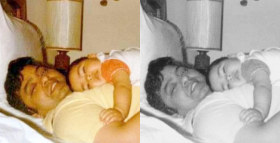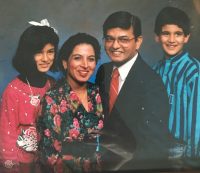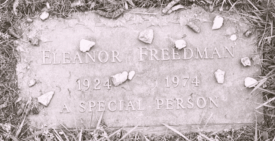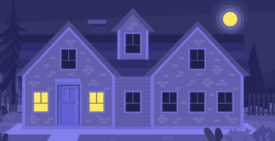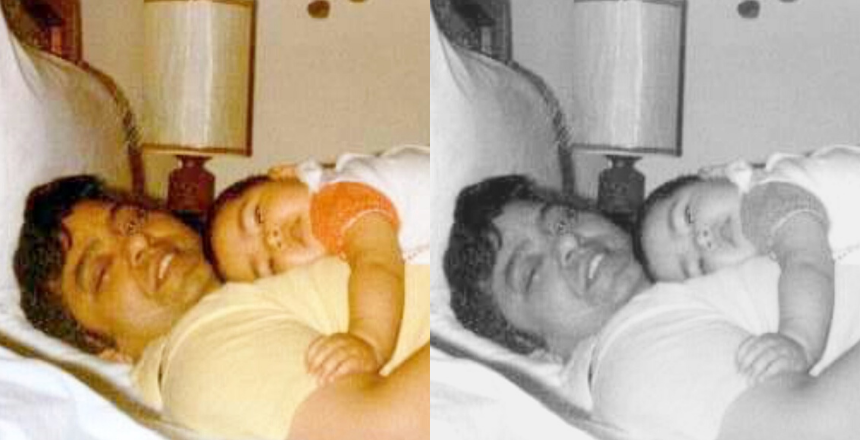
Shelly and her dad, 1983
I know grief is hella messy and non-linear. But I have to fight the urge to to wrap a metaphorical little bow around it. Because sometimes it feels easier to do than admit that twenty years in, I’m still lost at sea.
As an Indian American woman (I also refer to myself as Desi, Brown or South Asian), I am not supposed to share this stuff. My struggles with grief and how it affects my mental health should be a private matter, according to the unspoken-but-understood advice of my culture.
I was raised to be humble regarding my achievements (for fear of nazar, the evil eye) and also keep the inner turmoil of my emotional life to myself. At most, it could be discussed internally amongst family only.
Those ideas are ingrained deeply within me, and are the ones I fight against now. So I’m writing all of this with great resistance yet a desire to connect in all my messiness.
June 5 of this already strange year was the 20th anniversary of my dad’s death. When I write that, I’m tempted to write passing or loss in place of death because we live in a society where we try to soften every facet of grief (see my above training). Phrases like, “he has gone home” or “they are in a better place now” are used in a well-intentioned but misguided attempt to spin a death into something uplifting.
I was 18 when he died and surrounded by an incredibly supportive large network of friends and family. Not one of them recommended therapy. In fact, it didn’t even cross my mind as an option until my physician demanded it after I began to suffer from bizarre fainting spells and periods of time where I would black out during the day. All the tests revealed a perfectly healthy body but my doctor could spot the toll that grief was taking on my body.

Shelly and her family, 1993
While I live a rich life, I think in many ways my Dad would be proud of, I still struggle. With twenty years under my belt on this grief journey, here are some things I’m still learning:
- How to show up for myself.
- How to manage irrational fears of losing people I love.
- How I feel cheated when I experience major life milestones without my Dad present.
- The unexpected and sneaky ways grief manifests into my health when it remains unaddressed.
- How I sometimes feel jealous when I see people turning to their dads for advice.
- How my empathy and compassion for others in pain is larger than most.
- That I used to date emotionally unstable people because it created chaos that I had become accustomed to.
- How overwhelming rage I have about losing my Dad is like a wildfire that I am learning how to pacify daily.
- How healing it can be to see different portrayals of grief in mainstream media (This is Us, Never Have I Ever, etc.).
- How to honor my Dad adequately on my upcoming wedding day.
- How simply present with someone who is grieving is an enormous gift.
- The mind fog that accompanies grief is legitimate.
- Being praised for “moving on” quickly is a trap.
- The only way out is through.
- The happier moments of life are so much sweeter now that I have known the depths of real pain.
- Unless someone else has lost a parent they just don’t get it. It heals my heart to talk to people who get it.
- There is no happy Hallmark type ending to this and that’s okay.
Accepting that there is nothing shameful about struggling with mental health has been the biggest lesson. My first therapist I worked with seven years after my dad died was a WOC who understood the intricate, loving complexity of my Indian family and culture. Speaking to someone who came from a similar background was instrumental in bringing me back to life. It turns out that acting also gave me the permission to step back into my body and remains a place where my heightened sensitivity is an asset.
I speak up about this publicly now not to shame anyone (or myself) in the South Asian community but to encourage and empower my Desi brothers and sisters to give their mental health the love and attention it deserves.
I am still fine tuning my mental health workout. And I use the word workout because it is daily work for me. Here are some resources that support me:
- Therapy (once or twice a month)
- Kundalini yoga: the breathwork, mantras, and mudras help quiet the noise or as I crassly like to say it clears the shit out.
- Walks outside.
- Gratitude lists.
- Volunteering: I have volunteered at Experience Camps for a few years, an incredible camp that offers free, one-week sleep away camp experiences for children who have lost a parent, sibling or primary caregiver. Learning how to be present for grieving kids has taught me about to be present for myself too.
- Meditation: I work with an amazing teacher, Barbara Mastro.
- Daily movement (even if it is just dancing in my room for 10 minutes)
- Sharing memories about my dad with family and friends.
I speak up about this publicly now not to shame anyone (or myself) in the South Asian community but to encourage and empower my Desi brothers and sisters to give their mental health the love and attention it deserves. Acknowledging my grief and giving it love and attention broke my heart open to healing. While I remain a little lost at sea, I am now anchored in myself.
Shelly Bhalla is an actress and writer based in Los Angeles. She is best known for her role as Krishna on Jane the Virgin. She also volunteers with Experience Camps and serves on their Diversity & Inclusion Task Force.

